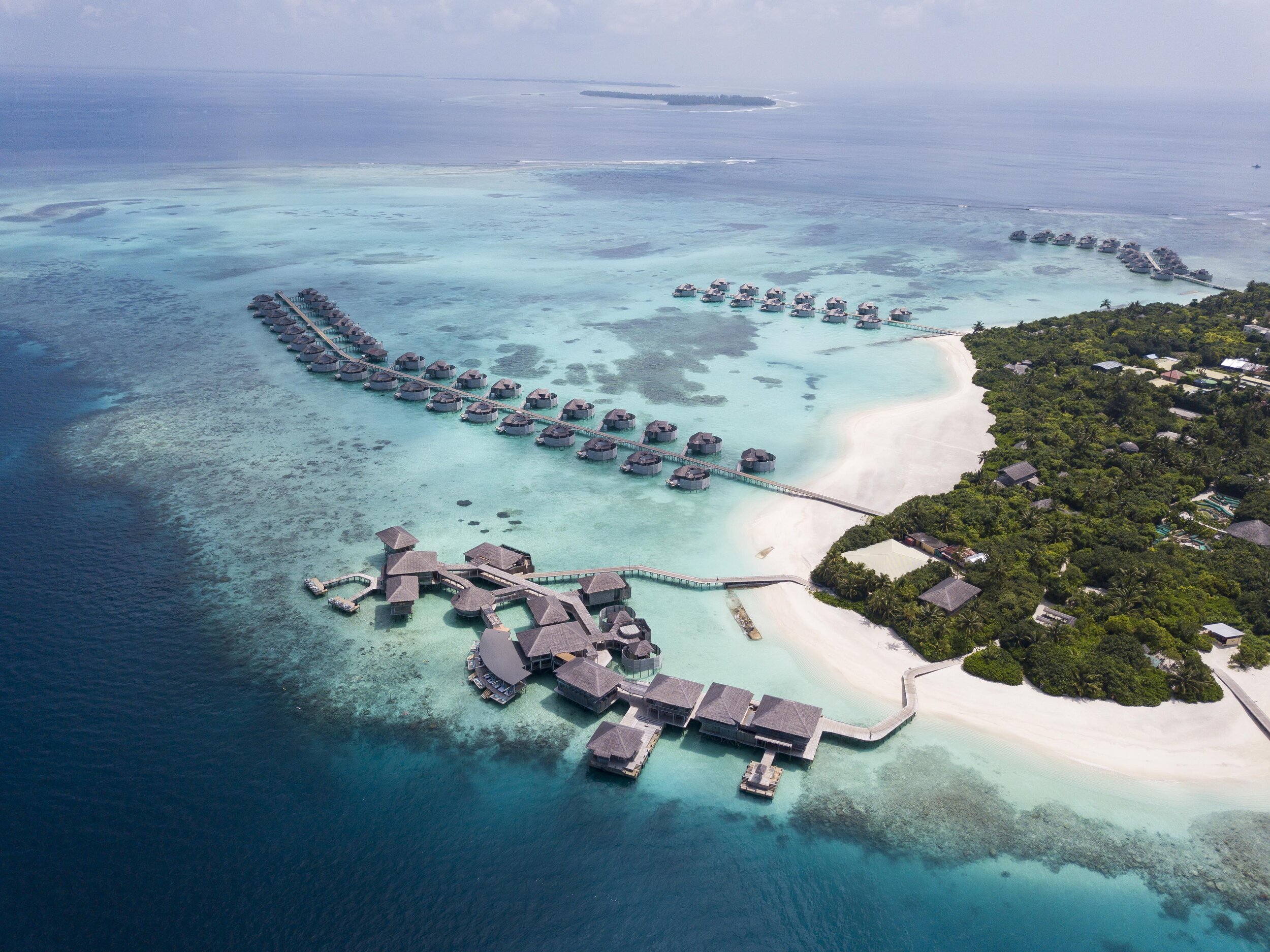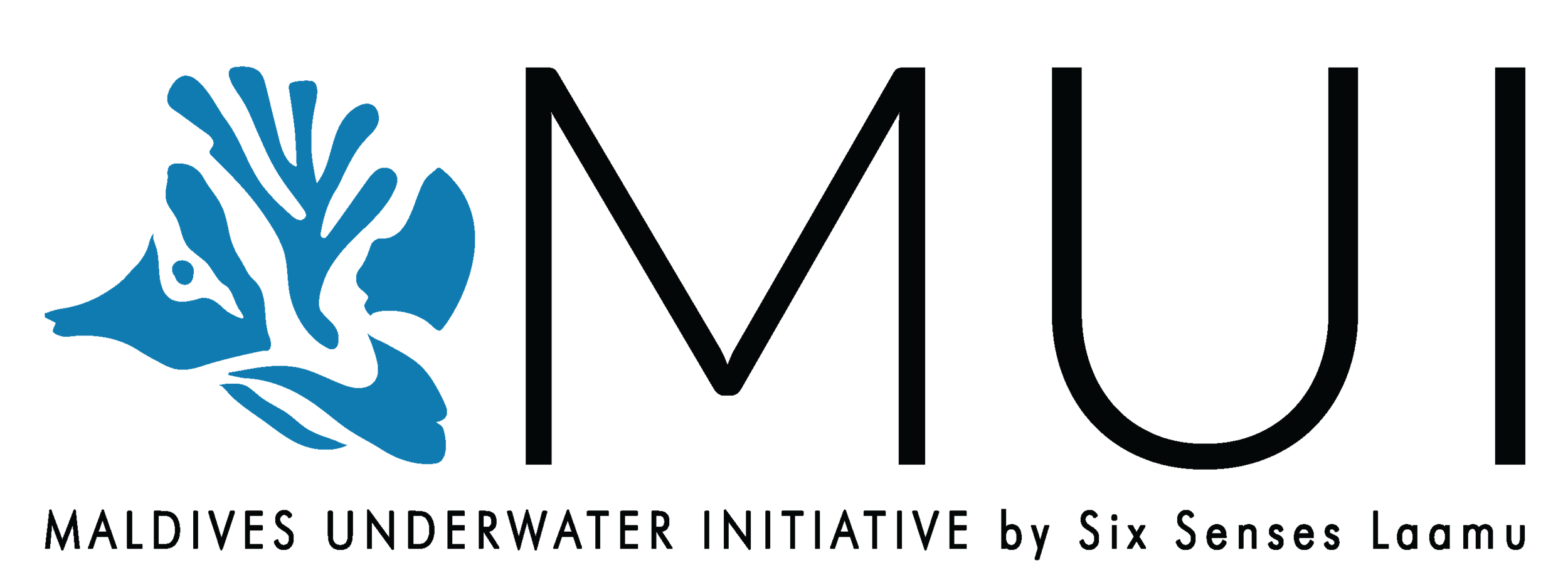
AT SIX SENSES, SUSTAINABILITY IS NOT SOMETHING THAT WE DO;
IT IS WHO WE ARE
Six Senses Hotels Resorts Spas is at the forefront of the sustainable tourism curve, with corporate sustainability guidelines consisting of 70 standards across all areas of operation and a target to eliminate single-use plastic from operations by 2022. Six Senses Laamu employs a dedicated Sustainability Manager who helps to push for continuous innovation in sustainability initiatives. The resort’s goal is also to enrich guest experiences by showing them how to live better lifestyles, both on holiday and back at home, by making decisions that benefit their health and the health of the planet.
This page outlines some of the sustainability initiatives in place at the Maldives Underwater Initiative’s homebase, Six Senses Laamu.
ENERGY
The Maldives is the lowest lying country in the world, with its highest point above sea level only 2.4 m. As a country at great risk from climate change-associated impacts like sea level rise, reducing energy use and its associated greenhouse gas emissions is paramount. All of the resort’s 97 villas are designed for passive cooling to reduce the need for air-conditioning. Waste heat recovered from our generators is used to produce hot water for resort. Guests are encouraged to ride bicycles, a zero-emissions means of transport.
WATER
Freshwater is a scarce resource in the low-lying coral cay islands of the Maldives and so water saving initiatives are imperative. All the resort’s freshwater is produced via an on-site reverse osmosis plant. All our wastewater is treated on-site and thanks to biodegradable detergents and cleaning supplies, this water can be recycled for use in landscaping. Toilets are fitted with fish-shaped water displacers so that each flush requires only half the water to refill the tank.
ZERO-WASTE
As a small island nation with no domestic recycling capacity, waste management in the Maldives is a serious issue, especially due to the likelihood of mismanaged waste from local islands entering the marine environment. Six Senses Laamu is striving to eliminate single-use plastics from operations by 2022. The resort has always used glass bottles for all its drink water (which avoids the use of more than 220,000 plastic bottles each year) and ceramic bottles for shampoos and lotions. Six Senses Laamu long ago switched out single-use plastic straws and bags for paper and woven leaf alternatives. New initiatives include: making mini-bar items on site and storing in glass containers, offering bamboo toothbrushes on request, and shipping products from overseas in Biobiene Thermoboxes (cardboard boxes with panels of insulating hemp, jute, and wood fibers). Guests can also purchase a Plastic-Free Toolkit to jumpstart their single-use plastic free lifestyle when they return home.
Around 20% of the resort’s inorganic waste is diverted from landfill annually thanks to efforts in the resort’s recycling hub, EarthLab. Here, crushed glass is used as aggregate in cement products, waste wood is turned into charcoal, old candles are melted into new ones and old towels are made into flower pots. The resort’s industrial composter converts around 500 kg of organic waste (mostly food prep waste like peels and rinds) into nutrient-rich compost for use in its organic gardens.
LOCAL PRODUCE AND PRODUCTS
The Maldives has a mere 300 km² of land area, making it difficult for the country to produce much more than tuna and coconuts domestically. Most of the delicacies found at resorts have to be imported at a great carbon cost to the environment. Six Senses Laamu strives to purchase local products such as seafood wherever possible and to grow its own produce on-site.
In 2018, our organic LEAF garden and aquaponics farming system produced 7,450 kg of 30+ different varieties of organic herbs, salad leaves, microgreens, and sprouts for our kitchens and bars, as well as 24 kinds of chillies and two varieties of mushrooms. Our flock of 50 hens living in our Kukulhu Village produce fresh organic eggs used each week in our Asian Buffet stir fries.


